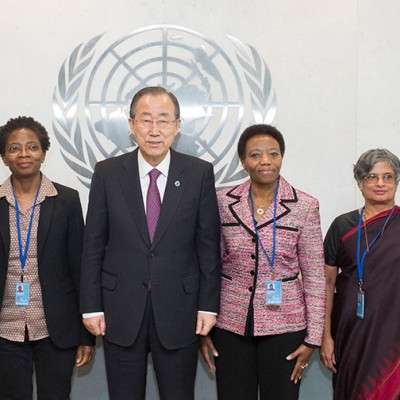Effective and good political leaders are not only able to guide their governments and perform effectively for their citizens, but can claim their place and effectiveness in the global community. Within their countries, "they deliver high security for the state and the person; a functioning rule of law; education; health; and a framework conducive to economic growth. They ensure effective arteries of commerce and enshrine personal and human freedoms. They empower civil society and protect the environmental commons. Crucially, good leaders also provide their citizens with a sense of belonging to a national enterprise of which everyone can be proud. They unite rather than unravel their nations and seek to be remembered for how they have bettered the real lives of the governed rather than the fortunes of the few." ("Leadership in Africa," The Mombasa Declaration 20 March 2004, African Leadership Council.)
On the other hand, under the stewardship of ineffective leaders, "roads fall into disrepair, currencies depreciate and real prices inflate, health services weaken, life expectancies slump, people go hungry, schooling standards fall, civil society becomes more beleaguered, the quest for personal and national prosperity slows, crime rates accelerate, and overall security becomes more tenuous. Corruption grows. Funds flow out of the country into hidden bank accounts. Discrimination against minorities (and occasionally majorities) becomes prevalent. Civil wars begin.
Unfortunately, Africa’s track record reflects the latter more significantly than the former. Africa has been marred by civil wars, atrocious human rights violations, corrupt governments and discriminatory practices led by malevolent and over-ambitious despots. As a result of weak governance systems and inept political leaders, many African countries are faced with the challenge of collapsed economies, an eroded tax base and heavy dependence on the exploitation of resources for state income and survival. The state is unable to provide basic and essential social and economic security like health care, education, and food security, forcing their citizens to seek alternative solutions, often found in the informal economy that is more than likely to be illegal as a form of survival.
We need not necessarily venture into history to find examples of such leadership; many present day African countries continue to suffer the consequences thereof. But Africa is also a paradox as the continent is home to some of the most sterling examples of leadership. Nelson Mandela, Julius Nyerere, Ellen Johnson Sirleaf, Thabo Mbeki, Joaquim Chissano, Kenneth Kaunda, Desmond Tutu, Ketumile Masire, Graça Machel, Kofi Annan, Wangari Maathai are not only examples of stellar leadership, but are symbols of today’s world-class leaders. There is no doubt that there are significant challenges for and of leadership in Africa that must be addressed critically in preparation of a new generation of political leaders to deliver Africa into the 21st century. Our hope and encouragement can be drawn from the examples of successful African leadership toward promoting the principles of integrity, respect for human rights, good governance and the promotion of the rule of law.
ACCORD’s new Leadership Programme for Africa, “Shaping Africa’s Future – Towards Responsible African Governance”, aims to play a constructive role in shaping the development of Africa’s future generation of political leaders.
Globally, the time has lapsed for inept leadership in Africa, as leaders can no longer waste the opportunity to dramatically transcend the way in which their political will, and that of their citizenry, is shaped. In extracting lessons learned from both the failures and successes of past and present African leaders, we attempt to influence the capacity and skills in empowering the next generation of leaders to influence the future direction of the continent.

